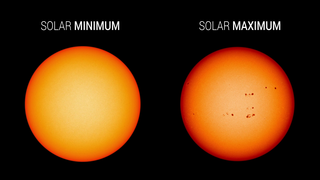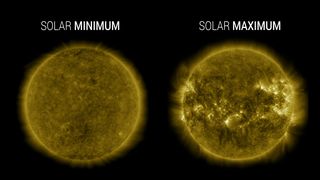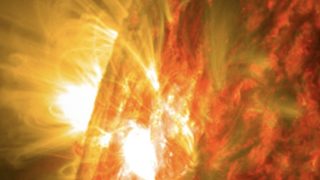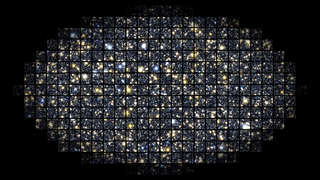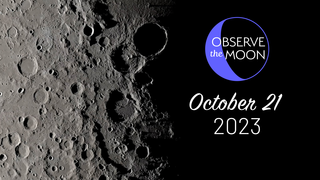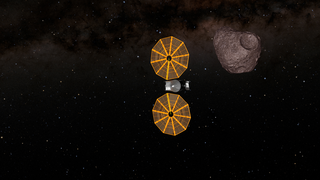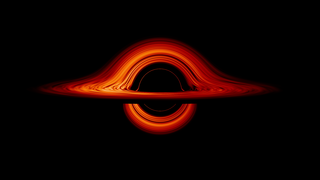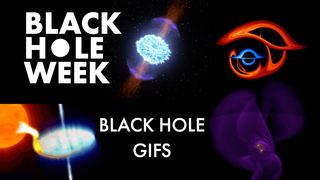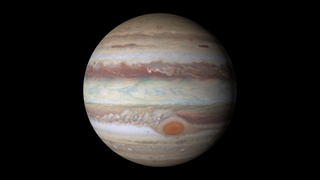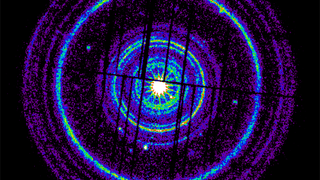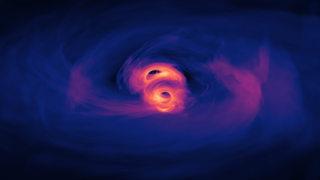Sun
ID: 13715
A new solar cycle comes roughly every 11 years. Over the course of each cycle, the Sun transitions from relatively calm to active and stormy, and then quiet again; at its peak, the Sun’s magnetic poles flip. Now that the star has passed solar minimum, scientists expect the Sun will grow increasingly active in the months and years to come.
How To Track The Solar Cycle
Understanding the Sun’s behavior is an important part of life in our solar system. The Sun’s outbursts—including eruptions known as solar flares and coronal mass ejections—can disturb the satellites and communications signals traveling around Earth, or one day, Artemis astronauts exploring distant worlds. Scientists study the solar cycle so we can better predict solar activity. As of 2020, the Sun has begun to shake off the sleep of minimum, which occurred in December 2019, and Solar Cycle 25 is underway. Scientists use several indicators to track solar cycle progress.
Related
For More Information
Credits
Scientists:
Lisa Upton (SSRC)
Doug Biesecker (NOAA)
Natchimuthuk Gopalswamy (NASA/GSFC)
Producer:
Joy Ng (USRA)
Lead Animator:
Krystofer Kim (USRA)
Animator:
Joy Ng (USRA)
Writer:
Kathalina Tran (SGT)
Lisa Upton (SSRC)
Doug Biesecker (NOAA)
Natchimuthuk Gopalswamy (NASA/GSFC)
Producer:
Joy Ng (USRA)
Lead Animator:
Krystofer Kim (USRA)
Animator:
Joy Ng (USRA)
Writer:
Kathalina Tran (SGT)
Please give credit for this item to:
NASA's Goddard Space Flight Center
NASA's Goddard Space Flight Center
Short URL to share this page:
https://svs.gsfc.nasa.gov/13715
This item is part of this series:
Narrated Movies
Keywords:
SVS >> Solar Cycle
GCMD >> Earth Science >> Sun-earth Interactions >> Solar Activity >> Sunspots
SVS >> Sunspot Cycle
SVS >> Solar Magnetic Field
NASA Science >> Sun
GCMD >> Earth Science >> Climate Indicators >> Sun-earth Interactions >> Sunspot Activity
SVS >> Solar Cycle 25
SVS >> Sunspot Number
SVS >> Solar Minimum
SVS >> Solar Maximum
SVS >> Royal Observatory Of Belgium
GCMD keywords can be found on the Internet with the following citation: Olsen, L.M., G. Major, K. Shein, J. Scialdone, S. Ritz, T. Stevens, M. Morahan, A. Aleman, R. Vogel, S. Leicester, H. Weir, M. Meaux, S. Grebas, C.Solomon, M. Holland, T. Northcutt, R. A. Restrepo, R. Bilodeau, 2013. NASA/Global Change Master Directory (GCMD) Earth Science Keywords. Version 8.0.0.0.0
https://svs.gsfc.nasa.gov/13715
This item is part of this series:
Narrated Movies
Keywords:
SVS >> Solar Cycle
GCMD >> Earth Science >> Sun-earth Interactions >> Solar Activity >> Sunspots
SVS >> Sunspot Cycle
SVS >> Solar Magnetic Field
NASA Science >> Sun
GCMD >> Earth Science >> Climate Indicators >> Sun-earth Interactions >> Sunspot Activity
SVS >> Solar Cycle 25
SVS >> Sunspot Number
SVS >> Solar Minimum
SVS >> Solar Maximum
SVS >> Royal Observatory Of Belgium
GCMD keywords can be found on the Internet with the following citation: Olsen, L.M., G. Major, K. Shein, J. Scialdone, S. Ritz, T. Stevens, M. Morahan, A. Aleman, R. Vogel, S. Leicester, H. Weir, M. Meaux, S. Grebas, C.Solomon, M. Holland, T. Northcutt, R. A. Restrepo, R. Bilodeau, 2013. NASA/Global Change Master Directory (GCMD) Earth Science Keywords. Version 8.0.0.0.0
